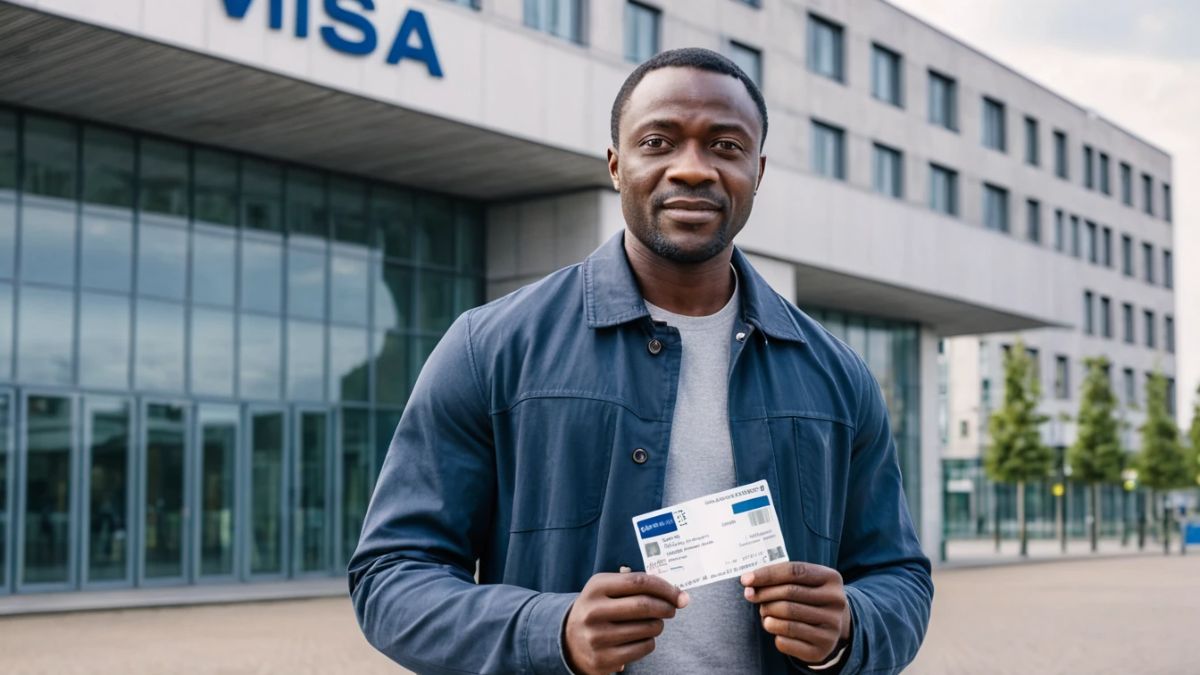Introduction
For many Nigerians dreaming of a life abroad, two common visa pathways often emerge as the most accessible:
-
Marriage to a foreign partner (Marriage Visa)
-
Visa sponsorship as a caregiver or support worker (Work Visa)
Each has its own promises, challenges, timelines, and risks. With rising interest in migration across Africa, more Nigerians are asking:
Which path is more reliable? Which one is cheaper? Which one is faster and more secure in 2025?
This article is a practical comparison guide, showing you the real differences between marriage visas and caregiver sponsorship routes—so you can make an informed decision.
Overview of Each Option
Marriage Visa
A marriage visa allows a Nigerian citizen to migrate and live abroad based on a legal marriage to a foreign citizen or resident.
Common countries offering this path:
-
United Kingdom (UK Spouse/Partner Visa)
-
United States (K-1 Fiancé or CR1 Spouse Visa)
-
Italy, Germany, Netherlands, and Canada (Family reunification permits)
These visas typically require evidence of a genuine relationship and legal marriage, with some allowing long-term residency and even citizenship.
Caregiver Visa Sponsorship
A caregiver sponsorship visa is a job-based pathway allowing Nigerians to work abroad in elderly care, home support, or assisted living facilities.
Common countries recruiting caregivers:
-
Canada (Home Child Care Provider and Home Support Worker Pilots)
-
Germany (with B1 German and recognition process)
-
United Kingdom (Health and Care Worker Visa)
This route involves training, experience (sometimes), and sponsorship by an employer or recruitment agency.
Comparison Table – Summary View
| Factor | Marriage Visa | Caregiver Sponsorship |
|---|---|---|
| Average Cost | $1,200–$3,500 (marriage, visa, translation) | $900–$2,000 (training, exams, visa) |
| Time to Approval | 6–12 months | 4–8 months |
| Language Required | Often none (depending on country) | Yes (IELTS or German B1/B2) |
| Risk of Denial | High (if relationship proof is weak) | Medium (based on qualifications) |
| Earning Potential | Low to moderate (initially) | Monthly salary + settlement path |
| Family Sponsorship | Yes (spouse/children) | Possible after permanent status |
Detailed Breakdown: Cost, Timeline, and Risk
Marriage Visa
Costs
-
Marriage registration/legalization: $300–$600
-
Document translation and apostilles: $200–$400
-
Visa application fee (country-specific): $150–$500
-
Interview preparation or legal help: optional, varies
-
Travel, relocation, and settlement: $500–$1,500
Timeframe
-
Relationship building + document gathering: varies
-
Visa approval: 6 to 12 months depending on country
-
Some countries (like Italy) offer shorter timelines; others (like the U.S.) may take longer
Risk Factors
-
Fake marriages, incomplete documentation, or inconsistent interviews are top reasons for denial
-
Applicants must provide:
-
Chat history
-
Photos
-
Travel records
-
Proof of cohabitation or long-distance continuity
-
Other Notes
-
Emotional strain can be high if one partner is abroad for long
-
If denied, appeal processes can be lengthy and expensive
Caregiver Sponsorship
Costs
-
Language testing (IELTS or Goethe/Telc): $150–$250
-
Document evaluation and certification (e.g. WAEC, transcripts): $100–$300
-
Visa application: $120–$200
-
Police clearance, medicals, biometrics: $150–$250
-
Optional: caregiver training in Nigeria (if required): $200–$500
Timeframe
-
Job search and documentation: 1–3 months
-
Employer processing and visa approval: 3–5 months
-
Total: 4 to 8 months
Risk Factors
-
Lower risk than marriage visa if documents and qualifications are accurate
-
Rejections usually due to:
-
Language failure
-
Lack of verified experience
-
Fake job offers or agencies
-
Other Notes
-
Training and licensing pathways may vary by country
-
Emotional pressure is lower, but professional preparation is essential
-
Real job, income, and independence upon arrival
Which Path Is Best for You?
Choosing the right visa path depends on your background, goals, and financial capacity. Below are some sample scenarios:
Choose Marriage Visa if:
-
You are in a serious relationship with a foreign citizen or legal resident
-
You’re ready to go through relationship documentation
-
You prefer not to take a language test
-
You’re open to settling as a family member, not as a worker
Choose Caregiver Sponsorship if:
-
You have healthcare, caregiving, or home service experience
-
You are ready to learn English or German formally
-
You want to earn a salary and gain independence from day one
-
You prefer a work-based migration route with career growth
Important Warnings and Tips
-
Avoid fake marriage arrangements; they often end in visa denial and legal consequences
-
Do not trust agencies that guarantee caregiver visas without contracts or charge upfront for fake jobs
-
Always verify job offers through official portals like:
-
Use only certified translators and document legalizers
-
Keep certified copies of every document
-
Document everything: communication, receipts, emails, contracts
Conclusion
Both the marriage visa and caregiver sponsorship pathways offer legal and practical routes for Nigerians hoping to start a life abroad. But they are very different in terms of cost, time, personal involvement, and long-term potential.
If your goal is to reunite with a loved one, the marriage visa may be right—provided the relationship is well-documented and genuine.
If you want to build a career, earn a salary, and migrate based on skill, caregiver sponsorship could be the smarter path.
Whatever you choose, do it legally, carefully, and with full preparation. For more guidance, check out our detailed migration guides below.
Frequently Asked Questions (FAQ)
Which option is faster for Nigerians in 2025?
Generally, caregiver sponsorship visas take 4 to 8 months, while marriage visas range from 6 to 12 months. However, timelines vary by country and case.
Can I apply for caregiver jobs without experience?
Some countries require at least 6–12 months of caregiving or nursing experience, while others accept formal training or certifications. Entry-level roles may also be available with proper documentation.
What proof do I need for a marriage visa?
-
Marriage certificate
-
Photos together
-
Chat and call logs
-
Travel records or visit evidence
-
Sworn affidavits or declarations
-
Proof of ongoing relationship and communication
Will I earn more as a caregiver than through a family visa?
Most caregivers start earning monthly salaries from day one. Marriage visa holders may not work immediately, depending on local regulations and job availability.
Can I switch from one visa type to another?
Switching from a family visa to work visa (or vice versa) depends on country-specific immigration rules. Some allow status changes after residency; others may require new applications.















